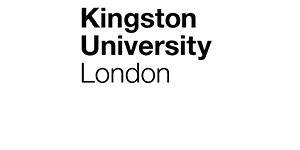UK Education Guide presents over 100 Boarding schools and Universities, all independently selected for their suitability to international students.
Boarding school costs:
The cost of Boarding schools varies significantly, but the average independent school boarding cost is £30,000 per year. This fee includes all boarding (food, accommodation) and tuition costs. It does not include travel costs to and from China, the cost of uniforms and sports equipment. Schools often also charge for school trips and additional fees will apply, if your child wishes to learn a musical instrument, or pursue a hobby that is not usually provided by the school.
An important additional cost to consider is also the cost of a Guardian. Almost all schools will require a responsible adult who is resident in the UK to be appointed by you to look after your child whilst they are living in the UK. We will cover the role of the Guardian in more depth in a later post, but typically a quality Guardian will cost at least £2,500 per year and on top of this there will be additional payments to cover the cost of your child staying at weekends and during short school holidays with the appointed host family.
Many schools do offer some scholarships for very able students. Rarely does this cover the full cost of study, but typically scholarship discounts are up to 30% of the full fees and may require your child to take additional tests in the UK. It is very important to apply early to schools if you wish your child to be eligible to apply for a scholarship.
University costs:
Universities-again costs vary, most notably depending on the course your child chooses to study. UK Education Guide outlines the cheapest degree programmes each University offers and there is some variation, but there is a far greater variation between subjects.
For example, University of Bristol is a very highly ranked UK University. The cost of studying an Arts or Humanities degree is £18,100, the cost to study Medicine is £32,600.
Living costs are not included in the tuition fees. It is worth estimating reasonable living costs, including rent at approximately £9,000 per year outside London and £14,000-£15,000 in London, due to higher accommodation costs. Travel home to China will, of course, be extra.
Where to start?
Make sure you have been realistic in calculating your UK Boarding school and university costs. The key issue with funding, from whatever source you use; savings, family support, grants, loans, scholarships is to make sure you have fully considered both your tuition, living and travel costs for the duration of the study period before you make the application.
Plan ahead – Planning finances in advance of an application deadline will be a huge help, you can then apply with confidence, knowing you can afford to progress with your application.
Some University scholarship & funding options
Identifying possible funding options
The advice from the British Council is to start your investigations in your home country, as schemes set up between UK government and overseas countries vary significantly. Also, there may be some funding available through other international bodies such at the UN and EU. Contacting the British Embassy or British Council offices in your home country is a good place to start. Start with the British Council offices and if there is not one in your home country, then contact the British Embassy.
A list of British Council offices can be found via this link British Council.
One of the best sources of information is Education UK, where you can search for scholarships you could be eligible for.
Examples of scholarships:
British Chevening Scholarships
The Foreign and Commonwealth Office (FCO) provides support for international students through its British Chevening Scholarships scheme. The scholarships (currently approximately 2,400 new scholarships each year) are offered in more than 150 countries and enable talented graduates and young professionals to study in the UK and to gain skills which will benefit their countries.
What do these awards support?
Awards are usually made for postgraduate diplomas/Masters course lasting up to one year. Candidates for British Chevening Scholarships are selected by British Embassies and High Commissions overseas. The scholarships are administered overseas and in the UK by the British Council on behalf of the Foreign Commonwealth Office.
Commonwealth Shared Scholarship Scheme
The Department for International Development, together with certain UK higher education institutions, supports the Commonwealth Shared Scholarship Scheme. The scheme is designed for students from Commonwealth countries who are unable for financial reasons to come to the UK and who fall outside the scope of other British Government schemes.
Commonwealth Shared Scholarship Scheme
Association of Commonwealth Universities
Address: John Foster House, 36 Gordon Square, London WC1H 0PF UK
Tel: 00 44 20 7380 6700
Institutional Scholarships & Funding
Once you have identified the type of course you wish to study, it is worth searching the web site of each university you are considering to see what financial support may be available.
The funding available varies greatly, by university, some focus almost entirely on postgraduate funding while others offer some financial support for undergraduates, but this might be related to specific courses and/or specific countries of origin.
Other awards may be open to all students regardless of their country of origin, level of degree or subject of study. Some institutions offer partial fee assistance, which may contribute around £1,000 towards the cost of tuition fees, and others offer several thousand pounds for a full-fee scholarship. There are also schemes that don’t go towards tuition fees but cover other expenses by providing, say, free accommodation. Also, most universities offer postgraduate course fee discounts to alumni who have already completed an undergraduate qualification at the same university.


